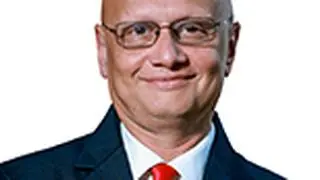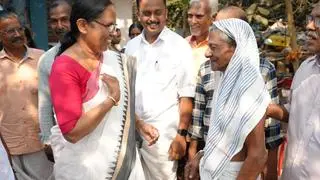Clouds of a fiscal or liquidity crisis are looming large over Kerala, a visible trend of which is the slower growth of own tax revenue.
This cannot be tackled by rate increases alone as compliance depends on administrative efficiency also, according to R Mohan, public finance expert, research scholar and a senior revenue service official.
Tax potential A detailed look needs to be give at the commodity-wise tax potential and actual collection, Mohan told BusinessLine . He recalled that the last Taxation Enquiry Committee was constituted in 1968, which was headed by MK Thavaraj.
Mohan suggested that the State consider a mechanism to settle disputes, such as a VAT settlement commission. Interest waver as a one-time concession could be part of this scheme.
He wondered if the Government could opt for a Central parity in pay and allowances by aligning grades with the Central pattern and pay revision made once in a decade.
Pay revision This should replace the quinquennial revision of pay followed in the State, which is a drag on efforts at consolidating revenue expenditure by every fifth year.
The government should look at how to compensate the loss in revenue resulting from the new liquor policy by toning up collection from elsewhere. Endless debates agonising over the issue won’t just help.
Mohan also warned that, given its status as high-income State, Kerala could not hope to get a favourable look from Finance Commissions.
Raising own tax revenue through administrative measures seem to be the first best way out as tinkering of rates will be difficult in the post-GST (goods and services tax) scenario.
Kerala‘s public finance has frequently reported to be in crises for over the past two decades or more.
More often than not, the real situation has not been correctly made out in debates in the public domain, Mohan said. “We have a revenue and expenditure pattern which has moved in the same direction over long run of 30 years right until the first half of the 2000s,” he observed.
Real picture In statistical terms, the revenue receipts and revenue expenditure were co-integrated and this is clearly contrarian to the view of crisis.
In the second half of 2000s, the State’s public finances entered a phase of consolidation, courtesy administrative efforts and a strong growth in the tax base.
The fiscal and revenue deficit ratios showed a declining trend, though not in line with the targets set by the Finance Commissions.






Comments
Comments have to be in English, and in full sentences. They cannot be abusive or personal. Please abide by our community guidelines for posting your comments.
We have migrated to a new commenting platform. If you are already a registered user of TheHindu Businessline and logged in, you may continue to engage with our articles. If you do not have an account please register and login to post comments. Users can access their older comments by logging into their accounts on Vuukle.